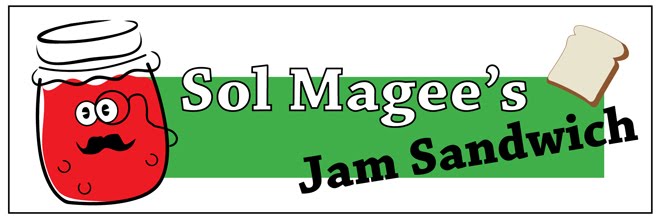The use of the words ‘spaces’ and ‘collectives’ amongst Dublinese creative types seems to be rising by the day. No longer is it acceptable to just get off your tits and have a dance on a night out, it is now part of the course to engage in some kitsch organised fun in the process.
But The Shed on Henrietta Lane is once ‘space’ that sticks to what it knows: art. Since their initial ‘Stranger than Paradise’ call for artists in 2006, The Shed has involved more than 130 artists in around 80 events all with Eli McBett at the helm.
Connected caught up with the founder/producer/artist to learn more... McBett attributes the establishment of The Shed to what she calls “Deformazione Professionale”, that’s chronic professional syndrome to us non-Italian speakers.
“I discovered to be affected by this syndrome many years ago, at the beginning of the 80's, when the urban context I was soaked in Roma, was dull and dry and all the past reference points were lost. Something like the Celtic Tiger was spreading sickness at that time in Italy.”
The globalisation or Americanisation of culture was a particular influence on the syndrome,“A shame for older forms of culture and heritage pervaded people, and developers took inspiration from the worst of American standards. This provoked in sensitive individuals, the positive deep wish to change the world with unique alternatives to collective suicide.” McBett says, “I was young at the time, but this environment was deeply influential in my development.”
The dominance of this syndrome for McBett led her to rejecting traditional academic institutions and “dusty bureaucratic infrastructures” and getting involved in independent cultural centres.
“We did Auto-Productions, producing off site theatre festivals and art activities that offered at the time a different way of expressing vision and perspective for cultural and political operators.”
In 1998, McBett arrived in Ireland and developed her views while working in ordinary jobs and creative projects on the side.
For a series of 14 installations aimed to Kilmainham Gaol, McBett required people participation, “I started teaching in jails, creating workshops with children travellers and in other contexts, and so, I went around interviewing individuals approaching them mostly through the community centres”, she explains.
This led to teaching people in rehab, in institutions and schools, with people with disabilities, teenagers in jail, children travellers, women in jail and people with mental disorders or disabilities.
But McBett is keen to stress that these were not groups, but individuals, “The creation of my art events includes individuals of various backgrounds, but they are all included on the same basis as whatever other collaborator. I adapt my actions to the individual personalities and avoid hierarchies.”
Government funding for these projects is at a minimal. The Shed received just €2,000 by the City Council art grant, which funded the centre for less than one month, and also got some flyers printed. In the past she got founded by the Istituto Italiano di Cultura only, despite being an Irish artist.
McBett says, “All the costs are covered by my personal money, my free non-stop work and other participant donations. I am repaying a personal loan with the bank that will bond me to this project unless some other source of income will help. Now an office team from Italian universities is temporary helping thanks to EU project Leonardo and Erasmus Placement.”
At the time of going to press, McBett is still applying for funding from the Arts Council, as she has every year - for the last decade.
But McBett says, “The real difficulty is finding individuals keen to participate in long term no profit projects. To have some regular supporters from the same audience would facilitate our independence from institutions and the possibility to equip the space and facilitate the artists in presenting their work for free. The more we are independent the less we need to waste time on bureaucracy.”
Irish pub culture is cited as one hindrance to The Shed, “My main hope is to start a proper artist/art-operators resident collective. There are plenty of difficulties in finding individuals so focused and also prepared in experimental performance and installations, such as the local culture and custom which pushes people mostly to socialise and meet in pubs.”
McBett encourages everyone to visit, “Come and introduce yourself, tell me what you usually do, what you would like to do here, and let's bring in whatever you like to exchange with others your creative experience in a once-off night.”
The Shed hosts international residences, monthly events, daytime workshops and classes, and a resident collective. www.mcbett.net

No comments:
Post a Comment